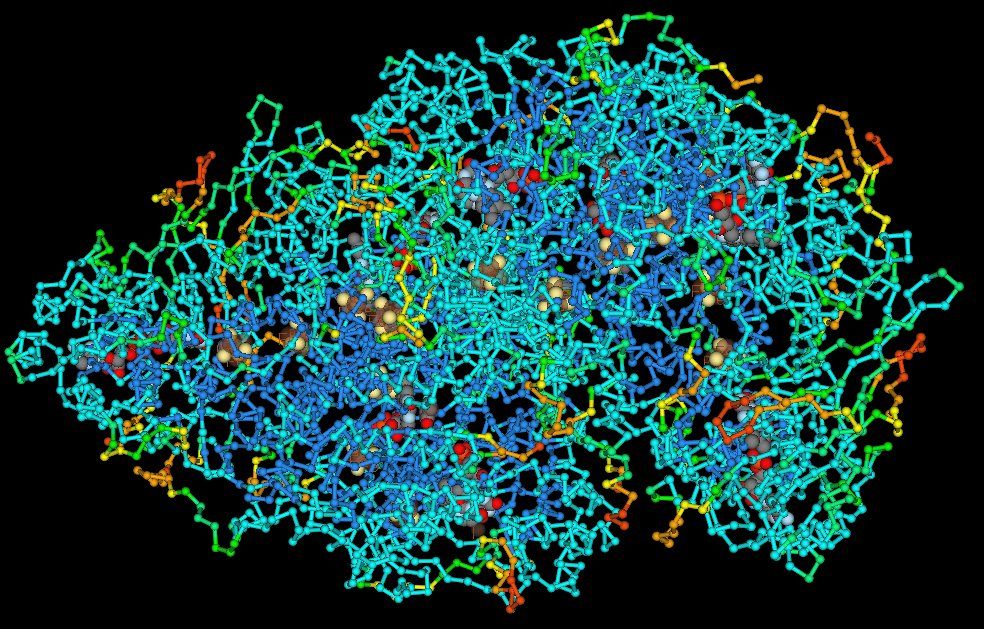Discovering the Varied Applications and Advantages of Polymers in Different Industries
Polymers, with their varied array of residential properties and functionalities, have become vital in various industries, each enjoying one-of-a-kind take advantage of their application. Polymers. From enhancing safety and performance in the vehicle market to changing clinical tools in the medical care industry, polymers play a critical role. Furthermore, their green nature is modifying the landscape of sustainability practices. As we look into the midsts of polymers in electronic devices, we discover advanced developments, while their structural honesty changes the world of building and infrastructure. The prevalent impact of polymers across industries is a testimony to their adaptability and flexibility, forming the future of numerous industries.
Automotive Industry Applications
Polymers play a pivotal duty in enhancing the efficiency and resilience of numerous components within the auto market. These versatile products are thoroughly used in the production of different parts, varying from indoor components to under-the-hood applications. One noticeable use of polymers in the vehicle sector is in the production of light-weight parts. By replacing standard steel get rid of polymer-based options, lorries can achieve enhanced gas performance without jeopardizing on toughness or safety and security.

Healthcare Sector Advantages
In numerous healthcare applications, the benefits of utilizing polymers are widely acknowledged for their varied series of helpful residential or commercial properties. Polymers play an essential duty in the healthcare market due to their versatility, biocompatibility, and cost-effectiveness. Among the key benefits of polymers in medical care is their ability to be tailored to details needs, such as flexibility, resilience, and biodegradability, making them optimal for a wide variety of medical applications.
Polymer-based materials are thoroughly made use of in medical devices, such as catheters, implants, prosthetics, and drug distribution systems, as a result of their biocompatibility and capability to imitate natural cells. These products can minimize the risk of allergic responses or rejections, boosting client safety and end results. In addition, polymers are lightweight, making them suitable for wearable clinical devices and ensuring person comfort.
Furthermore, polymers make it possible for the development of ingenious treatment techniques, such as hydrogels for cells engineering and nanocomposites for targeted medicine delivery. Their simplicity of handling and sterilization makes them crucial for preserving high standards of hygiene in medical care settings. On the whole, the diverse benefits of polymers add considerably to innovations in medical modern technology and client treatment.
Environmental Benefits of Polymers

Furthermore, polymers can contribute to energy cost savings as a result of their light-weight nature. In sectors such as transport, light-weight polymer products can help reduce fuel usage and greenhouse gas discharges. In addition, polymers can make it possible for the development of energy-efficient products such as insulation materials that improve power preservation see here now in structures.
In addition, polymers play an essential role in decreasing water contamination. For instance, making use of polymer-based filtering systems can successfully get rid of contaminants and pollutants from wastewater, securing water resources and environments. Overall, the environmental advantages of polymers make them beneficial properties in advertising sustainability and environmentally friendly methods throughout numerous industries.
Polymers in Electronics and Technology
Considering the increasing demand for innovative and sustainable services in modern-day sectors, the assimilation of innovative polymer modern technologies in the world of electronic devices and modern technology has actually become a pivotal method for driving performance and performance. Polymers have revolutionized the electronics market by making it possible for the manufacturing of lighter, a lot more flexible, and sturdy electronic gadgets. From smart devices to clinical gadgets, polymers play an essential role in enhancing product design and functionality.
One considerable advantage of polymers in electronics is their protecting homes, which help shield fragile digital parts from ecological variables and electrical interference. In addition, polymers are vital in the development of flexible screens, wearable modern find more info technology, and printed electronic devices, supplying endless possibilities for developing clever and interconnected devices.
Moreover, making use of polymers in electronic packaging has brought about advancements in miniaturization and thermal administration, boosting the overall efficiency and integrity of electronic systems. As modern technology remains to develop, the versatility and versatility of polymers will unquestionably drive further advancement in the electronics market, forming the future of innovation.
Role of Polymers in Building and Infrastructure
Polymers offer numerous benefits in the building industry due to their convenience, longevity, and cost-effectiveness. One vital function of polymers in construction is their usage in layers and sealants, providing protection versus ecological aspects such as wetness, UV radiation, and corrosion.
In addition, polymers play a crucial duty in sustainable construction techniques by allowing the development of energy-efficient frameworks. Protecting materials made from polymers aid control indoor temperatures, lowering the requirement for heating and cooling down systems and eventually reducing energy intake. The use of polymer-based compounds in framework jobs such as bridges and roadways enhances their longevity and minimizes upkeep costs. On the whole, the incorporation of polymers in building and construction and infrastructure showcases their considerable influence on modern engineering techniques.
Final Thought
In final thought, polymers play a crucial role in various markets such as automobile, health care, ecological, electronic devices, and building. Their flexible homes make them important in producing ingenious services and products. From improving fuel efficiency in vehicles to boosting clinical tools, polymers offer countless benefits. In addition, their influence on reducing waste and promoting sustainability highlights their significance in contemporary applications. The extensive use of polymers demonstrates their significant contribution to advancing modern technology and boosting lifestyle.